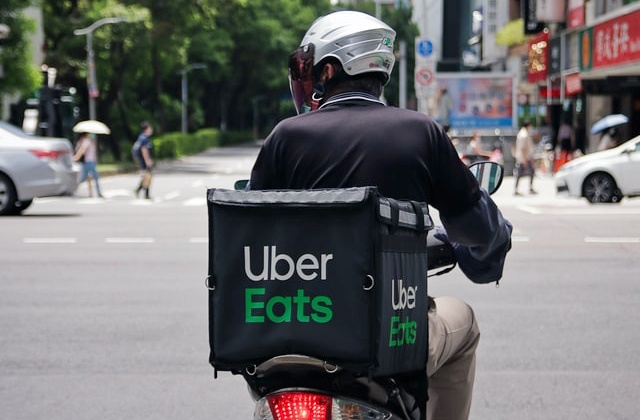Uber revealed that it is buying Drizly for $1.1 billion. Once the deal is completed, the American ride-hailing and food delivery service company will combine its newly acquired alcohol delivery service with its own Uber Eats App.
Uber sees the acquisition as one way for the company to broaden its reach
It was revealed that the payment was in cash and stock, and the transaction is almost done. The transaction still has some little things to fix, and it is expected to be completed in the first half of this year.
This means that the public will soon see Drizly as an option when using the Uber Eats application. While the alcohol e-commerce and delivery platform will be integrated with Uber Eats, it was clarified that it will remain a standalone app.
“Wherever you want to go and whatever you need to get, our goal at Uber is to make people’s lives a little bit easier,” Uber’s chief executive officer Dara Khosrowshahi said in a press release. “That’s why we’ve been branching into new categories like groceries, prescriptions and, now, alcohol.”
She added, “By bringing Drizly into the Uber family, we can accelerate that trajectory by exposing Drizly to the Uber audience and expanding its geographic presence into our global footprint in the years ahead,”
About Drizly
Drizly is an e-commerce platform that allows customers to order various spirits, wines, beers, and other alcoholic drinks directly from retailers. The items are then delivered to the buyers’ addresses.
This alcohol delivery service was also being referred to as “Amazon for liquor,” and it was founded in 2012. CNBC reported that it offers the service in 1,400 cities across the states. With its current reach and customers, it was noted that Drizly will be able to help drive more people to use Uber’s delivery app.
Finally, with Drizly on board, the Uber Eats app is predicted to dramatically soar in terms of the number of users. Uber was also affected by the COVID-19 pandemic, and with the new segment, it may bounce back faster as the demands for alcohol always remain high.



 Alphabet’s Massive AI Spending Surge Signals Confidence in Google’s Growth Engine
Alphabet’s Massive AI Spending Surge Signals Confidence in Google’s Growth Engine  CK Hutchison Launches Arbitration After Panama Court Revokes Canal Port Licences
CK Hutchison Launches Arbitration After Panama Court Revokes Canal Port Licences  TSMC Eyes 3nm Chip Production in Japan with $17 Billion Kumamoto Investment
TSMC Eyes 3nm Chip Production in Japan with $17 Billion Kumamoto Investment  Prudential Financial Reports Higher Q4 Profit on Strong Underwriting and Investment Gains
Prudential Financial Reports Higher Q4 Profit on Strong Underwriting and Investment Gains  Washington Post Publisher Will Lewis Steps Down After Layoffs
Washington Post Publisher Will Lewis Steps Down After Layoffs  OpenAI Expands Enterprise AI Strategy With Major Hiring Push Ahead of New Business Offering
OpenAI Expands Enterprise AI Strategy With Major Hiring Push Ahead of New Business Offering  Weight-Loss Drug Ads Take Over the Super Bowl as Pharma Embraces Direct-to-Consumer Marketing
Weight-Loss Drug Ads Take Over the Super Bowl as Pharma Embraces Direct-to-Consumer Marketing  SoftBank Shares Slide After Arm Earnings Miss Fuels Tech Stock Sell-Off
SoftBank Shares Slide After Arm Earnings Miss Fuels Tech Stock Sell-Off  Trump Backs Nexstar–Tegna Merger Amid Shifting U.S. Media Landscape
Trump Backs Nexstar–Tegna Merger Amid Shifting U.S. Media Landscape  Sony Q3 Profit Jumps on Gaming and Image Sensors, Full-Year Outlook Raised
Sony Q3 Profit Jumps on Gaming and Image Sensors, Full-Year Outlook Raised  Ford and Geely Explore Strategic Manufacturing Partnership in Europe
Ford and Geely Explore Strategic Manufacturing Partnership in Europe  American Airlines CEO to Meet Pilots Union Amid Storm Response and Financial Concerns
American Airlines CEO to Meet Pilots Union Amid Storm Response and Financial Concerns  Nasdaq Proposes Fast-Track Rule to Accelerate Index Inclusion for Major New Listings
Nasdaq Proposes Fast-Track Rule to Accelerate Index Inclusion for Major New Listings  Tencent Shares Slide After WeChat Restricts YuanBao AI Promotional Links
Tencent Shares Slide After WeChat Restricts YuanBao AI Promotional Links  Rio Tinto Shares Hit Record High After Ending Glencore Merger Talks
Rio Tinto Shares Hit Record High After Ending Glencore Merger Talks  Nvidia CEO Jensen Huang Says AI Investment Boom Is Just Beginning as NVDA Shares Surge
Nvidia CEO Jensen Huang Says AI Investment Boom Is Just Beginning as NVDA Shares Surge  TrumpRx Website Launches to Offer Discounted Prescription Drugs for Cash-Paying Americans
TrumpRx Website Launches to Offer Discounted Prescription Drugs for Cash-Paying Americans 































